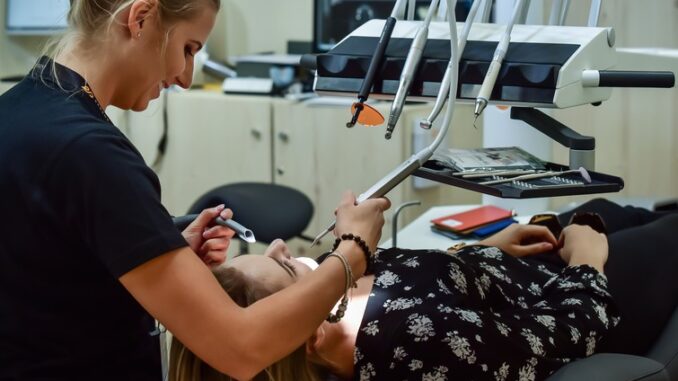
Dental pain can be like that unwelcome guest at a party – it shows up unannounced, can be a real nuisance, and sometimes, it’s a sign of something more serious that needs immediate attention. But when does dental discomfort signal an emergency, and how can you tell if it’s time to call your dentist or head to the nearest emergency room? In this article, we’ll unpack the signs that your pain might be more than just a fleeting annoyance and delve into the nitty-gritty of dental emergencies.
What Constitutes Dental Pain and Its Potential Seriousness?
Not all toothaches are created equal. Some dental pains are mild and temporary, while others can be severe and indicate an underlying problem requiring prompt care. Here’s what you should keep an eye on:
1. Toothache
-
A toothache can indicate underlying issues, such as dental decay, infection, or trauma. The pain may range from dull aches to intense discomfort, making eating, speaking, or sleeping difficult. Ignoring a toothache can lead to worsening symptoms and potentially serious complications, making seeking prompt dental care for evaluation and treatment crucial.
-
A professional offering advanced dental treatments can distinguish between a quick recovery or prolonged discomfort and health issues.
2. Swelling or Abscess
-
Swelling of the gums, face, or jaw accompanied by pain and tenderness can signal the presence of a dental abscess or infection. Abscesses are pockets of pus caused by bacterial infection and can lead to severe pain, fever, and systemic illness if left untreated. Immediate dental attention is necessary to drain the abscess, alleviate symptoms, and prevent the spread of infection.
3. Trauma or Injury
-
Traumatic dental injuries, such as a knocked-out tooth, fractured tooth, or soft tissue injury to the mouth, can cause significant pain and discomfort. Prompt evaluation by a dentist is essential to assess the extent of the injury and determine the appropriate treatment, which may include re-implantation of the tooth, bonding, or other restorative procedures.
-
When you need help fast, an emergency dentist is the go-to expert. For residents who need quick emergency dental care in Woburn, the right emergency dentist can alleviate pain, save teeth, and prevent the spread of infection, making a significant difference in the outcome of your dental crisis.
4. Bleeding Gums
-
Persistent bleeding from the gums, especially when accompanied by pain and swelling, may indicate gum disease or other periodontal issues. Gum disease can lead to gum recession, tooth loss, and systemic health problems if left untreated. Early intervention by a dentist can help manage gum disease and prevent further damage to the teeth and supporting structures.
5. Severe Sensitivity
-
Extreme sensitivity to hot or cold temperatures and discomfort when biting or chewing may be signs of underlying dental problems such as tooth decay, nerve damage, or dental fractures. These symptoms can worsen over time, leading to more extensive damage if not addressed promptly. Seeking dental care can help identify the cause of sensitivity and prevent further complications.
6. Loose or Lost Dental Restorations
-
If a dental filling, crown, bridge, or dental implant becomes loose or dislodged, it can expose the underlying tooth structure to bacteria and lead to pain and discomfort. Immediate dental attention is necessary to repair or replace the restoration and restore the tooth’s function and integrity.
-
Not every dental issue is an emergency, but that doesn’t mean it’s less critical. If you want to improve your smile’s aesthetics in a non-emergency context, cosmetic dental veneers in Woburn could be a great option. Veneers are a quick way to get that picture-perfect smile without extensive procedures.
7. Persistent Jaw Pain
-
Chronic or recurrent pain in the jaw joint (temporomandibular joint) may indicate temporomandibular joint disorder (TMD), which affects the jaw muscles and joints. TMD-related pain can be debilitating and impact daily activities such as eating and speaking. Seeking a dentist or specialist evaluation can help diagnose TMD and provide appropriate treatment to alleviate pain and improve jaw function.
Dental pain should not be ignored, especially when accompanied by other concerning symptoms. Seeking prompt dental care from a qualified professional is essential to diagnose the underlying cause of pain and prevent further complications, ensuring optimal oral health and well-being.
Maintaining Your Dental Health
While emergencies can happen to anyone, maintaining good oral hygiene and having regular checkups can reduce your risk. Brushing twice a day, flossing daily, and regular dental cleanings are your first line of defense against emergencies. This isn’t just about having a bright smile but your overall well-being.
Prevention Is Key
Remember, the best way to avoid dental emergencies is prevention. Regular dental checkups, good oral hygiene, and a keen awareness of changes in your dental health can keep you out of the emergency room. And when unforeseen pains arise, don’t wait. Immediate action is your best bet for a healthy, happy smile.
Final Thoughts
In a nutshell, pain can often be an indicator of a dental emergency, but it’s not the only sign. If you experience severe discomfort, swelling, or signs of infection or have endured dental trauma, seek professional help right away. A trusted dentist with advanced dental treatment experience can make a difference when preserving your oral health. And for those sudden, unexpected dental woes, remember that quick emergency dental care is available.

